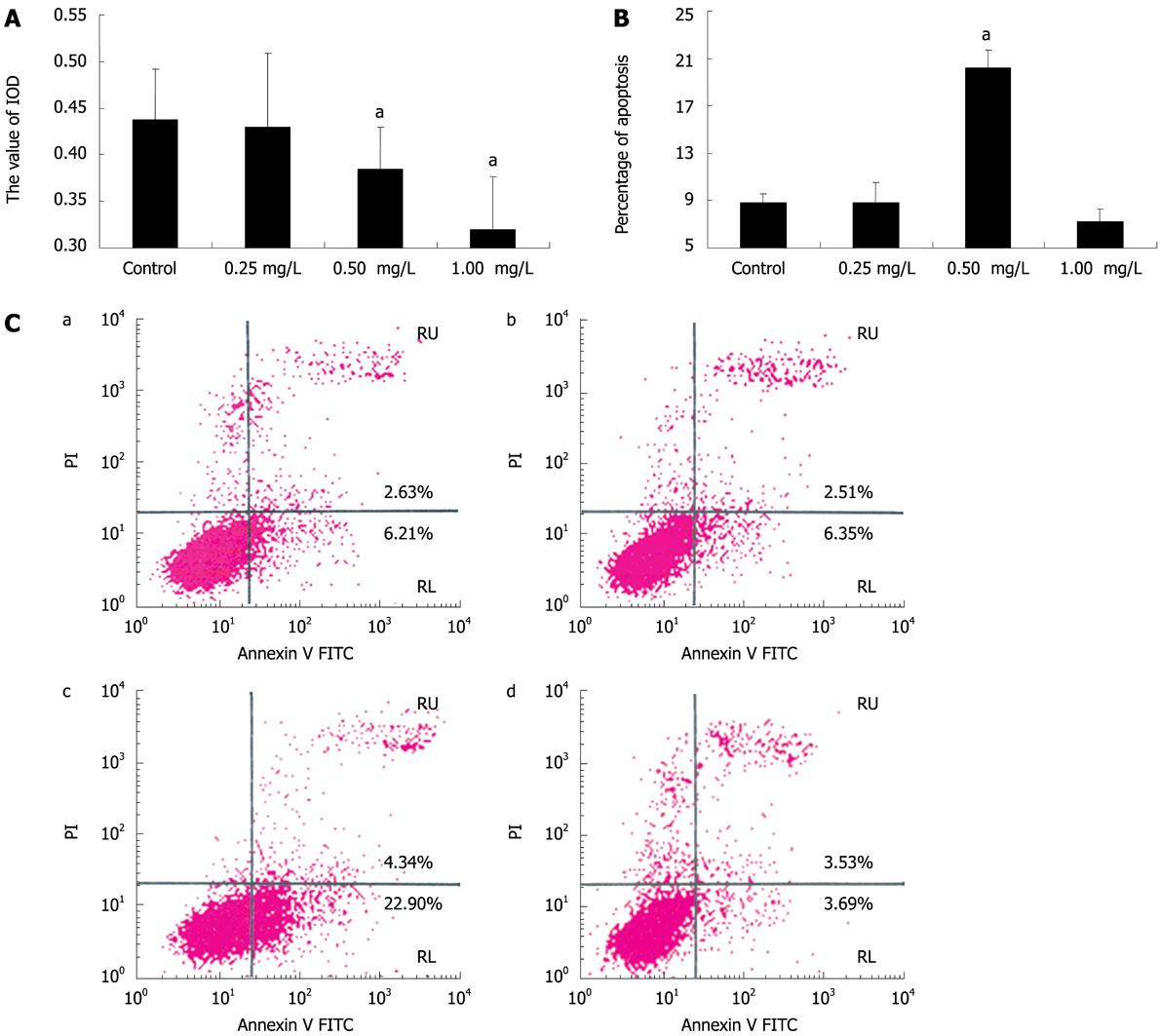Copyright
©2009 The WJG Press and Baishideng.
World J Gastroenterol. Jul 14, 2009; 15(26): 3246-3253
Published online Jul 14, 2009. doi: 10.3748/wjg.15.3246
Published online Jul 14, 2009. doi: 10.3748/wjg.15.3246
Figure 4 Anti-IGFBP-7 antibody induces HSC apoptosis.
A: HSC viability assay. The activated HSCs had anti-IGFBP-7 antibody of different concentrations added, and the absorbance (A) of each treated group was analyzed by the MTT cell viability assay to investigate the bioactivity of cultured cells. Statistical analysis was done using the SNK-q test. aP < 0.05; B: Percentage of apoptosis in all treated cells. Activated HSCs were divided into 4 groups, and then each group was treated with anti-IGFBP-7 antibody at different concentrations of 0 mg/L, 0.25 mg/L, 0.50 mg/L and 1.0 mg/L, and analyzed after 24 h culture, using flow cytometric assay. Statistical analysis was done using the SNK-q test. aP < 0.05; C: Flow cytometry assay. Cultured cells were treated with anti-IGFBP-7 body at different concentrations of 0 mg/L, 0.25 mg/L, 0.50 mg/L and 1.0 mg/L. After 24 h incubation, flow cytometry was used to analyze the pro-apoptotic effect of anti-IGFBP-7 antibody.
-
Citation: Liu LX, Huang S, Zhang QQ, Liu Y, Zhang DM, Guo XH, Han DW. Insulin-like growth factor binding protein-7 induces activation and transdifferentiation of hepatic stellate cells
in vitro . World J Gastroenterol 2009; 15(26): 3246-3253 - URL: https://www.wjgnet.com/1007-9327/full/v15/i26/3246.htm
- DOI: https://dx.doi.org/10.3748/wjg.15.3246









